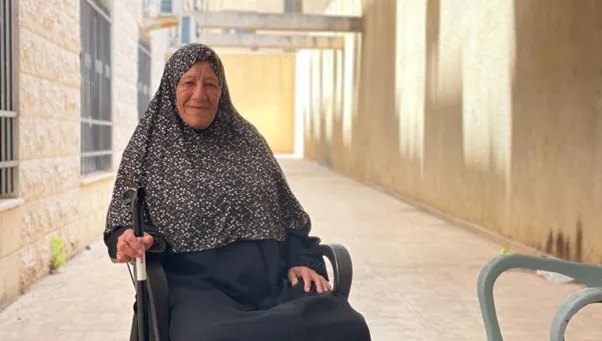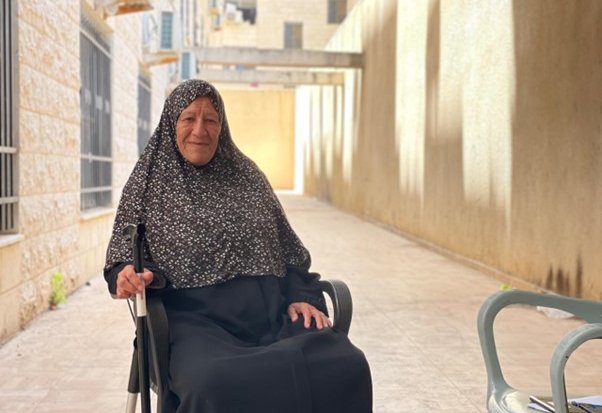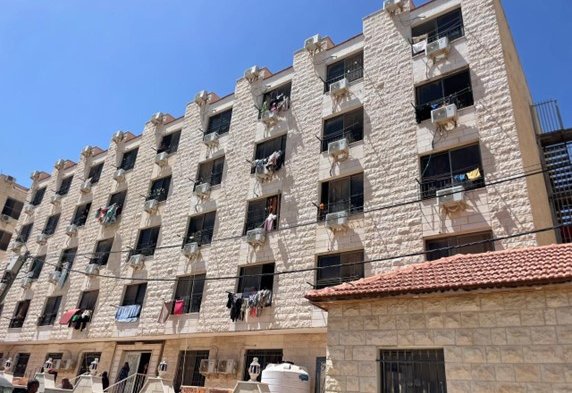The struggle of Jenin’s displaced families
8 August 2025


In January 2025, after the announcement of a temporary ceasefire in Gaza, the Israeli army launched an invasion of the camp that lasted for several months and led to the forced displacement of over 20,000 residents, widespread destruction, and attacks against civilians and healthcare facilities.
Those displaced from their homes have been forced to seek refuge across the West Bank, with the largest concentration in the city of Jenin itself, where 1,300 families have rented private accommodation. An additional 520 families are sheltering in student dormitories at the Arab American University of Palestine (AAUP). The remaining displaced families have been scattered across 84 other locations in the surrounding villages, with the highest numbers in Burqin, Qabatiya, Ya'bad, Yamun, and Silat al-Harithiya, as well as in two villages within the Nablus Governorate.
This wave of displacement is part of a deliberate component of Israel’s broader annexation efforts in the West Bank. Since early 2025, more than 40,000 Palestinians have been uprooted from Jenin, Tulkarem, and Nur Shams refugee camps, the largest mass displacement in the West Bank since Israel imposed its military occupation in 1967. Families that once held onto the closely connected community of camp life now find themselves scattered, uncertain, and struggling to rebuild from scratch.
Medical Aid for Palestinians’ (MAP) partner in Jenin, Not to Forget Association, has stepped in to support displaced families, responding to a growing mental health crisis. They provide weekly psychosocial support and group therapy sessions at the AAUP dorms to assist mothers, children, and the elderly in coping with trauma. These dorms were built for students, but entire families of four or five now squeeze into a space meant for a single occupant. There is little privacy, little comfort and even less certainty.
The needs are immense, every family requires mental health support, and Not to Forget Association is deploying all available resources to offer counselling, peer support, and psychological first aid.
We met with three women, Eman*, Samia*, and Fida*, who were forcibly displaced from Jenin refugee camp and now live in temporary student dormitories at the AAUP.

Eman remembers the day everything fell apart. “They gave us five minutes. I ran out with a bag of nappies. My father was left behind. We had no idea if we’d see each other again.” Her home, like hundreds of others, was reduced to rubble. The displacement not only stole her house, but also her children’s schooling, her access to healthcare, and her sense of safety. She speaks of long queues at temporary clinics and not knowing whether she could get her child’s asthma medication in time.
Fida’s experience was also harrowing. “My mother-in-law couldn’t walk. We dragged her through the streets. Drones flew over our heads telling us to move or our homes would be bombed.” Together with her four children, she fled under fire. When she returned to collect clothes and toys for her children, she was stopped by Israeli forces, detained, and accused of “helping terrorists” as they said.
“I just wanted to bring my children’s toys. They treated me like a criminal. It was the worst day of my life. Even my voice and tone changed. I yell now. I never used to. My children see me differently. I’m not the same mother I was,” she continues.
With no dedicated mental health support, many displaced families are silently enduring emotional scars that may last a lifetime. Children freeze at the sound of drones. Mothers hold back tears in front of their kids.
For Samia, in her seventies, the physical toll of displacement has been severe. With limited mobility, no access to a proper bathroom, and cut off from access to her blood pressure medication, each day is a struggle. “We’re old. We shouldn’t be sleeping on the floor or struggling to find a bathroom. But we don’t have a choice,” she says quietly. When her medicine ran out, she thought to herself, “I thought my time has come, and I’d die in my sleep.”
Education in Jenin refugee camp has now been destroyed. Schools were shut down during the Israeli military’s invasions, and returning to school now involves long, expensive commutes for students. Private schools in Jenin do not have the capacity to enroll the displaced students, and online learning is a distant dream for families focusing on survival. Fida and her husband now pay out-of-pocket for transport just so their kids can attend classes at a private school. “We used to have stability. Now we have nothing,” she says. Her husband walks to work to save every shekel for school fees, food, and rent.
Access to healthcare has similarly deteriorated. Following the Israeli military invasion and assault on the camp in July 2023, the humanitarian situation has been dire. The only health facility within the camp, run by UNRWA (the UN agency for Palestinian refugees) sustained significant damage, rendering it non-operational. In response to the crisis, UNRWA appealed for US$23.8 million to address the urgent needs of Palestinian refugees in Jenin, including the restoration of health services. Despite these efforts, severe funding shortages continue to impede the agency’s ability to provide adequate support.
Displacement isn’t just a loss of shelter, it’s a disruption of life. It means missing critical medical treatments. Fida suffers from a blood-clotting disorder and missed her injection during the chaos, leading to internal bleeding. “My legs swelled up. It took weeks to get seen by a doctor again,” she says. Even dignity has become a luxury.
These stories reflect one of the worst humanitarian crises the West Bank has seen in decades. Destroyed clinics, damaged roads, ambulances blocked from treating the sick and wounded, and the dismantling of mental health services have left families stranded and scarred. The aid they once received at the beginning of the forced displacement – food, hygiene kits, school supplies – has decreased as the displacement prolongs.
These women are not passive victims. They speak out not for sympathy, but for recognition. They want justice. They want their homes. And they want the world to see them, hear them, and act. Until then, these women carry on. Not because they have a choice, but because steadfastness is the only thing they still own.
Top photo: Samia, a resident of Jenin refugee camp.
*Names changed to protect the identities of those involved.